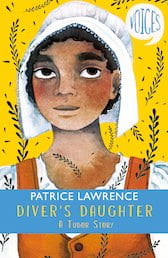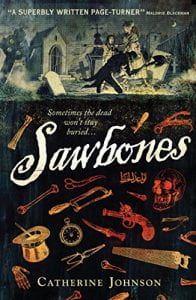October is Black History Month. However problematic the concept of naming certain days, or months, as the time to concentrate on areas of life that have relevance all year, every year, it does give us the opportunity to hone in on some relevant resources. In this case, we have the specificity of history, and in this blog we have the focus of children’s literature.

 The lack of representation in children’s literature of people of colour, in the broadest sense, has been highlighted over recent years (see for example here, and here). There are a variety notable new initiatives to try to address this: the new periodical Pen&Inc, promoting diversity within books, authors, and publishers; newly established publishers, such as Knights Of; book prizes, such as the Fab Prize, and the Diverse Book Awards. BookTrust Represents is a new project created by the UK’s largest children’s reading charity, as a direct response to the lack of authors and illustrators of colour within the children’s book world.
The lack of representation in children’s literature of people of colour, in the broadest sense, has been highlighted over recent years (see for example here, and here). There are a variety notable new initiatives to try to address this: the new periodical Pen&Inc, promoting diversity within books, authors, and publishers; newly established publishers, such as Knights Of; book prizes, such as the Fab Prize, and the Diverse Book Awards. BookTrust Represents is a new project created by the UK’s largest children’s reading charity, as a direct response to the lack of authors and illustrators of colour within the children’s book world.
Preceding these new initiatives , Letterbox Library has been selecting and supplying, to teachers, libraries and parents, the very best in inclusive children’s books, focusing on multicultural and social justice, for some 30 years.
 However, when it comes to history, there are well-founded claims that there is a significant gap in Black British history in our children’s books, whether information books or fiction. There are some fabulous books about black history coming from the USA, in particular. There are books published in the UK about history in many lands. We have wonderful picture books and fiction looking at the recent past in the lived experiences of refugees and asylum seekers in Britain. Yet the long history of black
However, when it comes to history, there are well-founded claims that there is a significant gap in Black British history in our children’s books, whether information books or fiction. There are some fabulous books about black history coming from the USA, in particular. There are books published in the UK about history in many lands. We have wonderful picture books and fiction looking at the recent past in the lived experiences of refugees and asylum seekers in Britain. Yet the long history of black  people’s presence in Britain is confined largely to non-fiction biographical accounts of individuals such as Mary Seacole, Olaudah Equiano and Walter Tull. Inspirational though these characters may be, they are often presented as notable exceptions, in contrast to the heroes of the American Civil Rights movement, such as Rosa Parks and Martin Luther King – inspiring as individuals yet also part of the broader struggle.
people’s presence in Britain is confined largely to non-fiction biographical accounts of individuals such as Mary Seacole, Olaudah Equiano and Walter Tull. Inspirational though these characters may be, they are often presented as notable exceptions, in contrast to the heroes of the American Civil Rights movement, such as Rosa Parks and Martin Luther King – inspiring as individuals yet also part of the broader struggle.
Let’s hope some of the initiatives above add some historical grist to their mill. In the meantime, the well-established publisher, Scholastic, has brought out a series called Voices, with fictionalised stories from Roman Britain, Tudor and Victorian Britain, and the Second World War. The series is aimed at 8-12 readership, but will be appreciated by older readers, too.
Written by some of our best authors, this new series is well worth seeking out. Empire’s End, set towards the collapse of the mighty Roman Empire, tells the story of Camilla from Leptis Magna, in present-day Libya. She and her father travel from North Africa, via Rome and London, to the north of Britain, at the behest of the Emperor Septimius Severus. It’s a gripping page-turner. The contrasts of culture and climate, riches and poverty, patronage and cruelty are seamlessly woven in to Camilla’s adventures. Although fiction, it is based in historical fact: the archaeological record shows that people of Black African heritage did live in Britain during this period, and people from all over the Roman provinces married and had children. An excellent read, and a good insight into an overlooked aspect of Black British history. I look forward to reading the rest of the series.
Also highly recommended are two books by Catherine Johnson, both fast-paced historical thrillers: Freedom (2018) and Sawbones (2013). Sawbones features a freed slave, a young lad working in the grisly world of late eighteenth century surgery, with grave-robbing, body-snatching and murder. Freedom won the Little Rebels Prize, and follows the adventures of 12-year old slave Nathaniel, brought to London from Jamaica, who falls among a group of black abolitionists.
 For older readers, with some dark themes (slavery, teenage pregnancy, abandonment, child deaths), there is the compelling, well-crafted and carefully researched classic, Coram Boy, (2000) by Jamila Gavin, again set in the eighteenth century.
For older readers, with some dark themes (slavery, teenage pregnancy, abandonment, child deaths), there is the compelling, well-crafted and carefully researched classic, Coram Boy, (2000) by Jamila Gavin, again set in the eighteenth century.
If you have any recommendations for good children’s fiction which would help us understand the long sweep of Black British History, please let us know. It would be great to share your leads via the Comments box.
“History is never about the past. It is about the present.” Paddy Rodgers, Director, Royal Museums Greenwich, speaking on the Radio 4 Today programme, 12/10/2020 (at 8.50am, if you want to listen – it’s a great interview, and only two minutes long.)






